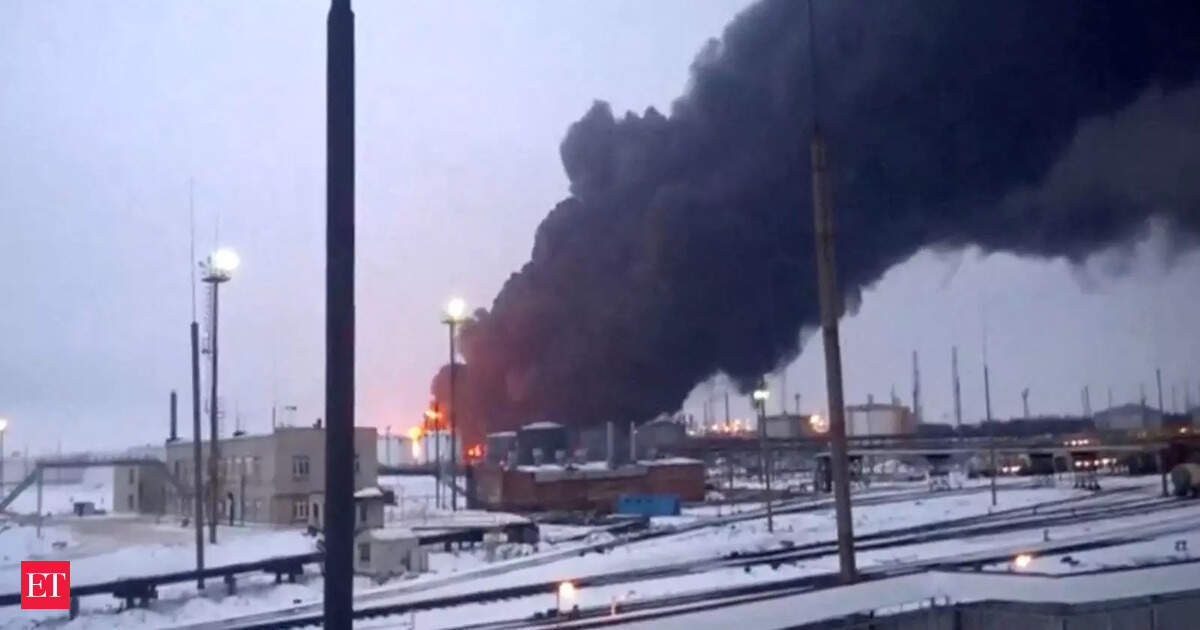Now Reading: Russia Mulls Oil Output Cuts Amid Drone Concerns
-
01
Russia Mulls Oil Output Cuts Amid Drone Concerns
Russia Mulls Oil Output Cuts Amid Drone Concerns

Swift Summary
- Russia’s oil pipeline monopoly, Transneft, has warned producers of potential output cuts following Ukrainian drone attacks on key export ports and refineries.
- Ukrainian drones have targeted at least 10 refineries and disrupted operations at Russia’s largest Baltic Sea ports: Ust-Luga and Primorsk.
- Thes attacks have reportedly cut refining capacity by nearly a fifth and temporarily shut down Primorsk, which exports over 1 million barrels per day (~10% of Russia’s total production).
- Kyiv claims the strikes are aimed at reducing Moscow’s revenues too weaken its war effort against Ukraine. President zelensky described these attacks as “the sanctions that work the fastest.”
- transneft restricted oil storage in its pipeline system and warned of further limitations if infrastructure damage increases.
- Sources predict a potential decline in Russian production due to limited storage capacity and refinery outages. However, Asia (India & China) continues to absorb most re-routed Russian crude exports.
- Western banks estimate modest declines in Russian output despite challenges.
Indian Opinion Analysis
The escalation in drone strikes on Russian energy infrastructure signifies a deeper economic pressure strategy by Ukraine. While these disruptions could weaken Russia’s oil-dependent economy (which accounts for up to half of its federal budget), their long-term effects remain uncertain; Asian nations like India continue playing pivotal roles as major buyers of redirected crude. Incremental shifts or price fluctuations induced by reduced supply might challenge india’s energy planning but are unlikely to deter its strategic interests with Moscow amid growing geopolitical complexities.
Further developments may force india into recalibrating import strategies without severing economic ties-a balance reflective of neutral foreign policy alignment central to navigating global tensions.
Read More: Economic Times



























